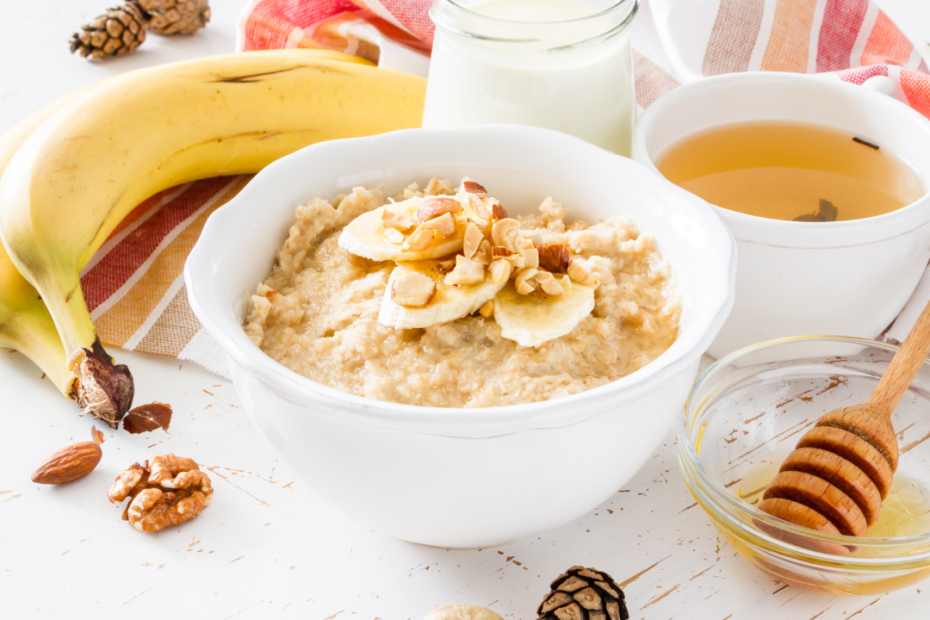Added sugar is lurking everywhere in our food and beverages. You can find it in the most unlikely of places, such as in bread, salad dressings and crackers. The American Heart Association recommends no more than 6 teaspoons of sugar per day for women and no more than 9 teaspoons of sugar per day for men. However, few of us follow those recommendations. In fact, the average American adult consumes approximately 17 teaspoons of added sugar a day, which amounts to about an extra 270 calories a day, most of this added sugar comes from beverages such as coffee tea, energy drinks and sports drinks.
If you’re looking to reduce the added sugar to your diet, there are some healthier options that can provide the right flavor of sweetness to your foods without sending your blood sugar soaring. Here are some smart sugar substitutes to consider:
Raw Honey
Honey is antimicrobial, antibacterial, and antifungal—so much so that it’s even been used to treat wounds. Its distinctive brand of sweetness is welcome in almost any dish. One tablespoon of raw honey has 64 calories and has a low glycemic load, meaning it won’t raise your blood sugar as quickly as sugar will. It’s important to note that these are the benefits of raw honey. Pasteurized honey loses the many of the health benefits that raw honey boasts. Also, remember that it’s not chemically the same as sugar: If you’re making a swap, substitute no more than one-third of the sugar for honey.
Organic Milk or Cream
Those who can’t stomach the stuff know all too well that milk and cream are full of lactose. It’s less well known that lactose is, in fact, a type of natural sugar that lends a gentle hint of sweetness to all kinds of recipes. Think about how a little cuts the bitterness in your coffee. It’s especially good from bring a touch of sweetness to a savory soups and stews. Consider the calcium you’ll get as an added bonus.
Grated Carrots
Instead of adding sugar to your favorite pasta sauce recipe, try grated carrots instead. The natural sugar brings just the right amount of sweetness (and a dose of vitamin A and beta carotene)—with no added sugar.
Beets
Much of the refined sugar you eat comes from beets—and for good reason. They are among the sweetest plants growing. In fact, the original red velvet cakes used grated beets to achieve its earthy sweet flavor and ruddy hue. Try them in smoothies, grated into your next chocolate cake, or in soups for an unexpectedly sweet taste.
Lemon Juice
Salad dressings are prime suspect when it comes to identifying hidden sugar in your diet. Make your own salad dressing with olive oil and lemon juice, and sweeten it slightly with a splash of vitamin-C-packed fresh-squeezed orange juice.
Caramelized Onions
It sounds strange, but onions have surprisingly high sugar content. It’s just that we don’t taste it in their raw state, when those harsh, sharp, eye-burning flavor compounds hog our attention. Rich in polyphenols, onions are one of the healthiest common vegetables and a nutrition-packed addition to your meals. Cooked slowly over a low heat, the sweetness comes into focus. They can replace corn-syrup-laced condiments, like ketchup, on your next burger.
Maple Syrup
This sweet stuff isn’t just for waffles and pancake breakfasts. Its complex flavors bring sweetness to baked goods and is a big improvement over granulated sugar in your morning coffee. With slightly fewer calories and more minerals than honey, this antioxidant-rich elixir has health benefits, too. Maple syrup is an outstanding source of manganese, and contains calcium, potassium and zinc. It’s also full of antioxidants which can help to neutralize free radicals that are linked to aging and many diseases. Select darker, Grade B maple syrups, as they highlight more of maple syrup’s nutritional benefits.
Apples
Applesauce (with no added sugar) is a classic ingredient for cutting fat and sugar out of recipes. Grated whole apples can work this way, too. Try some in your next batch of whole-wheat pancakes and you may not even want to reach for syrup. Diced apples also make a fiber-rich sweetener for plain yogurt. Just don’t peel the skin—that’s where most of the disease fighting compounds and fiber are.
Dates
Dates are loaded with potassium, copper, iron, manganese, magnesium and vitamin B6. From the date palm tree, they’re easily digested and help to metabolize proteins, fats, and carbohydrates. Evidence shows that dates may help to reduce LDL cholesterol in the blood and may reduce the risk of stroke.
Bananas
Bananas are rich in fiber and potassium, and a good source of vitamins B6 and C. They’re also naturally sweet with a subtle flavor, making them a perfect natural sweetener. Try them in smoothies or mixed in plain yogurt.
Real fruit jam
Berries, peaches, plums, apples, pears, and grapes are great replacements for sugar in recipes. You can use commercially available fruit jam; just be sure to read the ingredient label and choose one without added sugar (Naked Jams and Mrs. Miller’s are two particularly good sugar free jams). You can also make your own sugar-free jam with organic fresh or frozen fruit. It’s easy and economical.
Balsamic glaze
Balsamic vinegar is rich in antioxidants that destroy free radicals, rich in the enzyme pepsin that helps to promote healthy digestion, and it tastes great. Choose one without added sugar.
Stevia
If none of the above solutions solves your sugar dilemma, you may want to reach for a sugar substitute. Of the currently available options, stevia, which is derived from an herb and has been used in certain parts of the world for centuries, is your healthiest bet. It’s super sweet—many times sweeter than sugar or honey—and should be used in moderation.
Reference: “11 Best Sugar Substitutes (the Healthiest Natural Sweeteners)” Dr. Axe
Content submitted by Janyce Gately MS, RD, LDN, CHWC
